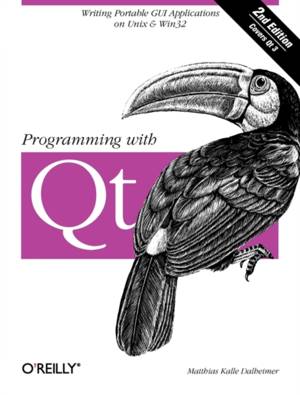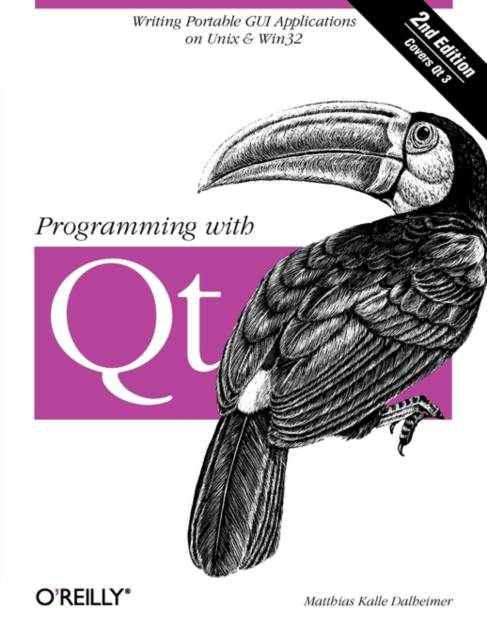
- Afhalen na 1 uur in een winkel met voorraad
- Gratis thuislevering in België vanaf € 30
- Ruim aanbod met 7 miljoen producten
- Afhalen na 1 uur in een winkel met voorraad
- Gratis thuislevering in België vanaf € 30
- Ruim aanbod met 7 miljoen producten
Zoeken
€ 53,45
+ 106 punten
Omschrijving
The popular open source KDE desktop environment for Unix was built with Qt, a C++ class library for writing GUI applications that run on Unix, Linux, Windows 95/98, Windows 2000, and Windows NT platforms. Qt emulates the look and feel of Motif, but is much easier to use. Best of all, after you have written an application with Qt, all you have to do is recompile it to have a version that works on Windows. Qt also emulates the look and feel of Windows, so your users get native-looking interfaces. Platform independence is not the only benefit. Qt is flexible and highly optimized. You'll find that you need to write very little, if any, platform-dependent code because Qt already has what you need. And Qt is free for open source and Linux development. Although programming with Qt is straightforward and feels natural once you get the hang of it, the learning curve can be steep. Qt comes with excellent reference documentation, but beginners often find the included tutorial is not enough to really get started with Qt. That's where Programming with Qt steps in. You'll learn how to program in Qt as the book guides you through the steps of writing a simple paint application. Exercises with fully worked out answers help you deepen your understanding of the topics. The book presents all of the GUI elements in Qt, along with advice about when and how to use them, so you can make full use of the toolkit. For seasoned Qt programmers, there's also lots of information on advanced 2D transformations, drag-and-drop, writing custom image file filters, networking with the new Qt Network Extension, XML processing, Unicode handling, and more. Programming with Qt helps you get the most out of this powerful, easy-to-use, cross-platform toolkit. It's been completely updated for Qt Version 3.0 and includes entirely new information on rich text, Unicode/double byte characters, internationalization, and network programming.
Specificaties
Betrokkenen
- Auteur(s):
- Uitgeverij:
Inhoud
- Aantal bladzijden:
- 520
- Taal:
- Engels
- Reeks:
Eigenschappen
- Productcode (EAN):
- 9780596000646
- Verschijningsdatum:
- 26/02/2002
- Uitvoering:
- Paperback
- Formaat:
- Trade paperback (VS)
- Afmetingen:
- 231 mm x 178 mm
- Gewicht:
- 816 g

Alleen bij Standaard Boekhandel
+ 106 punten op je klantenkaart van Standaard Boekhandel
Beoordelingen
We publiceren alleen reviews die voldoen aan de voorwaarden voor reviews. Bekijk onze voorwaarden voor reviews.











